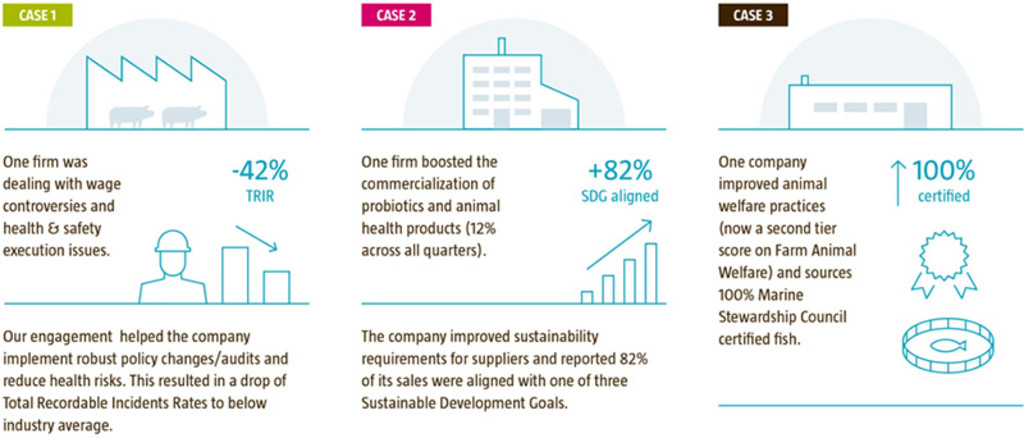Supply chain sustainability has become increasingly important when determining whether companies meet environmental, social and governance (ESG) standards when sourcing their materials. The analysis focuses of the production of the ingredients or components that go into the product, rather than the end-product itself and the labor standards involved.
In many industries, it exposes issues with unsustainable practices at various stages of the supply chain, from extraction and initial manufacturing, to the transportation, distribution and storage of components. Common problems include labor force abuses, unsustainable mining, over-extraction of organic resources and processing methods that are polluting.
A number of industries face significant ESG problems at the beginning of the supply chain. These include:
Unsustainable practices in the meat and fish supply chains, including factory farming, overuse of antibiotics, overfishing and the use of deforested land to rear cattle. Robeco has engaged strongly over the years on these issues, with encouraging results.
Poor labor practices in the textiles supply chain – particularly unsafe working conditions and low pay in sweat shops to make clothes for the Western market. This can lead to disasters such as the Rana Plaza tragedy in Bangladesh in 2015. Robeco was a co-founder of the Platform Living Wage Financials, which tries to counter this kind of thing.
Deforestation in the palm oil supply chain, in which plantation managers clear virgin forest land to meet Western demand for this essential product. This is a major engagement theme for Robeco, including the use of a spy satellite to detect deforestation.
Environmentally hazardous mining practices in the commodity supply chain that have led to significant pollution and fatal accidents, which include tailings dams collapsing at iron ore or copper mines. Robeco has engaged heavily on this topic for many years, focusing mainly on Brazil.
Examples of how engagement has brought improvements in the textiles and food sectors.

Source: Robeco

Creating returns that benefit the world we live in
Even industries that are thought of as very sustainable face supply chain problems. Manufacturers of electric cars, for example, must source lithium and cadmium as raw materials for car batteries. These minerals are fairly rare and run the risk of being sourced from suppliers using child labor and environmentally destructive practices in Africa and South America.
Companies stand to face significant reputational damage if their supply chains are not carefully monitored and they become embroiled in a scandal. Corporations therefore increasingly see sustainability in the entire supply chain as being essential to long-term profitability. A sustainable supply chain can also offer value creation opportunities and competitive advantages.






















